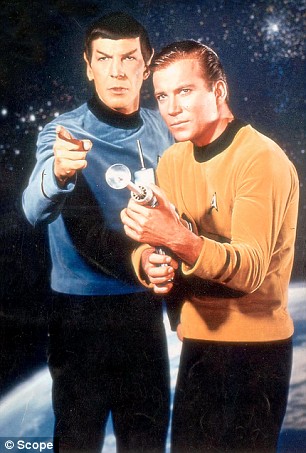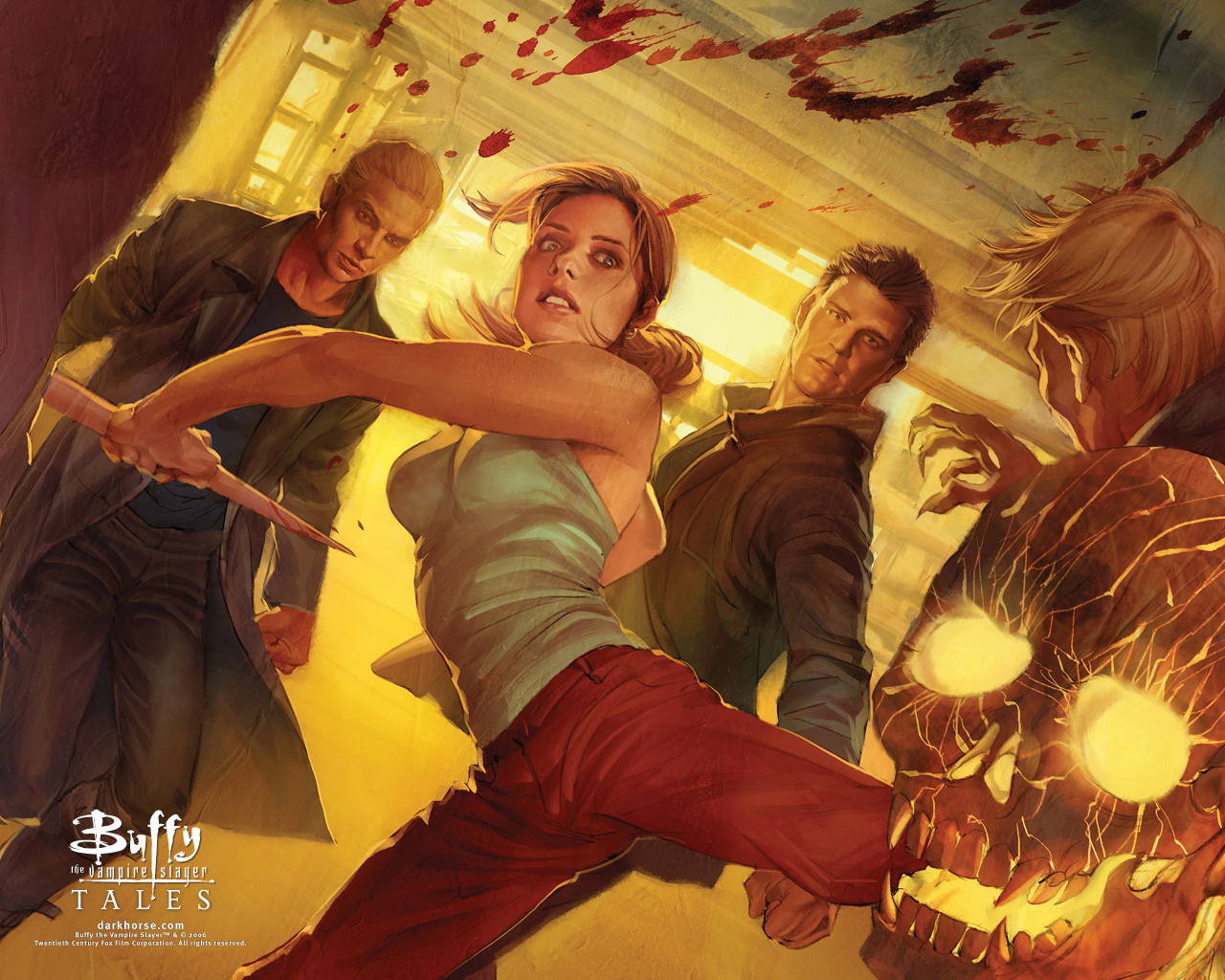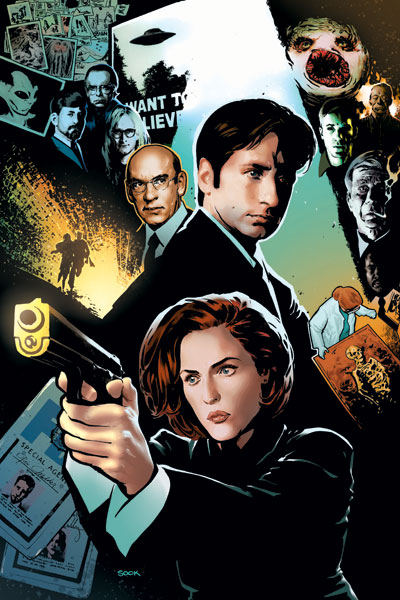Network television is in trouble. That’s right. Between Netflix and Amazon offering original programming of their own, to the success of HBO Go and Showtime Anytime, the future of television is moving in a digital direction. But they aren’t the trouble I’m referring to. While these rapidly growing subscription based websites are indeed a threat to network TV, there’s another figure on the horizon to be wary of, one which is almost identical in its episodic format but much more practical. I’m talking, of course, about comic books.
A lot of time, money, and effort go into the production of your typical television series. A sizable staff of writers, actors to play the parts, designers for the sets and costumes, camera operators, directors, editors, sound and lighting professionals, soundtrack composers, on set advisors, producers, extras, make-up artists—you know, all those words and names that appear in the credits that nobody pays any mind to. Well, not only are all of these jobs necessary, but many of these people are very well-paid. A television show is a huge and costly collaborative effort, and a successful one is a perfect storm of these jobs done exceptionally well. Most shows fail, and networks are always looking for the next big thing.

There are shows, however, that had more life in them than the network television formula could sustain. Who hasn’t heard of Star Trek at this point? Someone who’s never seen an episode of the show is still very likely familiar with William Shatner as Captain Kirk and Leonard Nimoy as Spock. The original series made an impact on popular culture that nobody could have anticipated, especially since it was cancelled after the third season. Yes, there were other Star Trek TV shows, and plenty of movies too. However, it’s the original that seems to represent the franchise. Shatner as Kirk, among others, were part of that perfect storm.
It wasn’t long until Star Trek comics came along. They started in 1967 and they’ve been around ever since. It was a show for only three seasons and a comic book for almost half a century. And it isn’t finished yet. John Byrne, comic book icon, is working on this year’s Star Trek Annual, and it’s coming in the form of a lost episode from the show’s first season. Only, it won’t be illustrated. Carefully edited screenshots from the original television series allow the story to be told through photograms. That’s right, young Nimoy as Spock, young Shatner as Kirk—it’s magic that only a comic could achieve. Fans of the series have been content to read what NBC and their cancellations just couldn’t offer, and Star Trek is just the beginning.

Sometimes it isn’t the network’s fault. Buffy the Vampire Slayer ran for a whopping seven seasons. Sarah Michelle Gellar, who starred as the title character, opted not to sign on for season eight, as she wanted to end it on a high note, given the show’s popularity. I wouldn’t go as far as to blame Gellar, however, as seven years is a hell of a long time to be doing anything. You can’t fault her for wanting to expand her career, and that’s precisely what her and others on the show wanted to do.
With Buffy, the comics didn’t wait until the show ended to begin running. From ‘98 to ‘04, the comics were being simultaneously released as the show itself was airing, set in between episodes of existing seasons. Then, in ‘07, Dark Horse Comics started running Buffy the Vampire Slayer Season 8, effectively continuing where the show left off. Is it worth reading? Absolutely. Joss Whedon, the show’s creator, and the reputable Brian K. Vaughan are among the credited writers, and that alone ought to be reason enough to seek them out.
So, aside from the constantly looming threat of a cancellation by the network, it’s a challenge keeping these massive production teams together. Human beings, unfortunately, grow old; life takes us in new directions; ambitions rise as rapidly as they fall; and career paths are constantly changing. The life of a given television show might well be far greater than anything that a network could sustain, what with the massive amount of skilled professionals that are required to make it and the time it might take to gain a following. Buffy and Star Trek are only my two best examples of this.

The X-Files eventually ended—as we all know—but before it did, the leads, Gillian Anderson and David Duchovny, came and went per the events in their personal lives, tasking the writers to compensate. It too continued as a comic in the form of additional seasons, and there are many more: Angel, Charmed, Jericho, Alf, Serenity, Smallville, Battlestar Galactica, Xena, and Doctor Who are a handful of others that continued as comics after their respective networks, or otherwise, caused them to be discontinued.
A comic book can be illustrated and written entirely by one person, although many are done by at least two. It goes without saying; television certainly has its benefits. However, far too many things need to go right for a show to succeed. The in-depth examples I provided are, in my opinion, shows that could have gone on much longer if not for the sheer size of the operation and the time it takes to create them. Is network television in trouble? Yes, I believe it is, but not because of a threat from comics. It's because of creative, financial, and logistical limitations. Cable is effectively changing that, but comic books offer consistency and freedom in storytelling that is nothing short of unprecedented, and it’s time they got some credit.